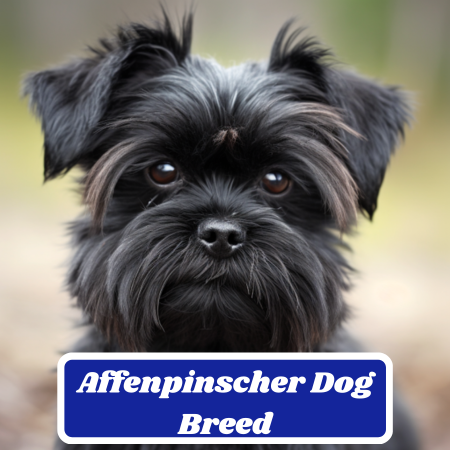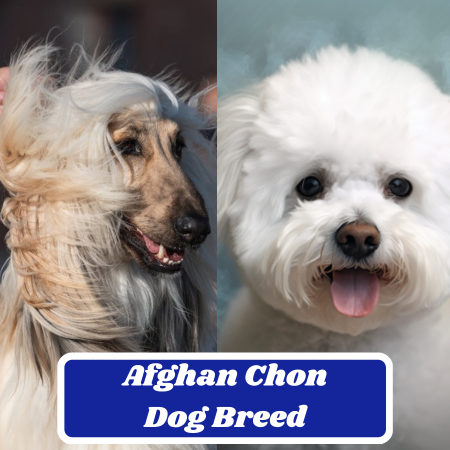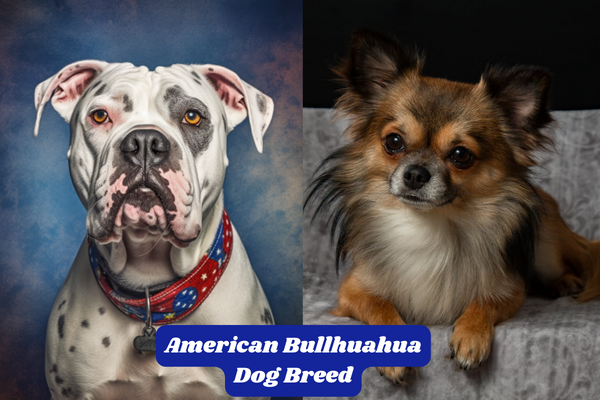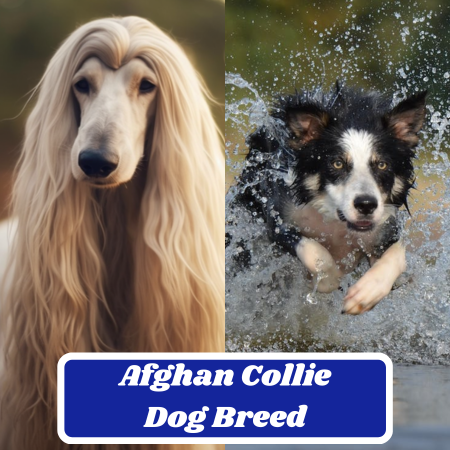Akita Shepherd Dog Breed: Information, Appearance, and Characteristics
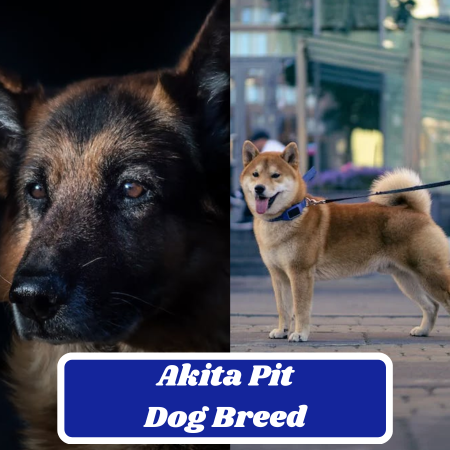
| Height | Weight | Lifespan | Colors | Temperament |
|---|---|---|---|---|
| 24 – 28 inches | 70 -120 pounds | 9- 13 years | black, white, brown or brindle. | Active, strong, protective, loving |
The Akita Shepherd Dog Breed: A Loyal and Independent Companion
Brief History of Akita Shepherd Breed
The Akita Shepherd is a relatively new breed, a cross between an Akita and a German Shepherd. The origins of the breed can be traced back to the early 20th century in Japan, where the Akita was originally bred for hunting large game such as bears and deer.
The German Shepherd, on the other hand, was developed in Germany as a versatile working dog used for herding and guarding sheep.
In recent years, breeders have recognized the potential benefits of combining these two breeds to create an intelligent, loyal, and protective companion that is suitable for families or individuals with active lifestyles.
However, it’s important to understand that despite its mixed ancestry, the Akita Shepherd has unique characteristics that set it apart from both parent breeds.
Importance of Understanding the Breed Characteristics
Before bringing an Akita Shepherd into your home, it’s important to understand its temperament, personality traits, and physical characteristics.
While every dog is unique and has its own personality quirks, understanding what traits are common in this breed will help you prepare for living with your new companion.
Additionally, knowing about any health issues or specific training needs can help ensure your dog stays healthy and happy throughout his life.
By understanding what makes this breed special and unique from other dog breeds, you’ll be better equipped to care for your furry friend properly.
| Breed Characteristics | |
|---|---|
| Temperament | |
| Good with Children | ⭐️⭐️⭐️☆☆ |
| Sociability with Dogs | ⭐️⭐️⭐️☆☆ |
| Friendliness towards Strangers | ⭐️⭐️⭐️☆☆ |
Physical Characteristics of the Akita Shepherd
Size and Weight
The Akita Shepherd is a large breed of dog, with males weighing in between 75-120 pounds (34-54kg) and females weighing between 70-110 pounds (32-50 kg).
They stand at about 24-28 inches (61-71 cm) tall at the shoulder.
The breed is known for its muscular build, with a broad chest, strong legs, and powerful neck. These physical characteristics make the Akita Shepherd an excellent guard dog.
Coat Color and Texture
The coat of the Akita Shepherd is thick and dense, with a double coat that provides excellent insulation in cold weather. The outer coat is straight and coarse while the undercoat is soft and thick.
The breed comes in various colors: black, white, brown or brindle.
Although their coats are considered low maintenance because they do not require frequent grooming, brushing them weekly is important to keep their coats healthy.
Facial Features
The Akita Shepherd has a distinct face with almond-shaped eyes that give them an intense gaze. Their ears are erect and triangular-shaped which give them an alert look.
They have a powerful jawline equipped with sharp teeth, making them great guard dogs to protect your home from intruders.
Some Akitas may have a black mask-like feature around their face, making them stand out among other breeds. : The physical characteristics of the Akita Shepherd show how they are built for strength, creating great protection dogs for your home.
They have double coats providing protection from cold weather but also require weekly brushing to maintain their healthily-looking coats.
Their faces have specific features like almond eyes that give off an intense look making them ideal as watchdogs.
Temperament and Personality Traits
| Breed Characteristics (Higher = More Suited) | |
|---|---|
| Flexibility | |
| Apartment Living | ⭐️⭐️☆☆☆ |
| Good For New Owners | ⭐️⭐️☆☆☆ |
| Prefers Cold / Winter Dog | ⭐️⭐️⭐️☆☆ |
| Prefers Warm / Summer Dog | ⭐️⭐️⭐️☆☆ |
| Physical Needs | ⭐️⭐️⭐️⭐️☆ |
| Energy Level | ⭐️⭐️⭐️⭐️☆ |
| Exercise Needs | At Least 35 Minutes / Day |
Akita Shepherds have a unique personality that sets them apart from other breeds. They are known for being fiercely loyal to their families and are excellent protectors.
These dogs will stop at nothing to keep their loved ones safe and secure, even if it means putting themselves in harm’s way. The protective nature of Akita Shepherds is deeply ingrained in their DNA, as both the Akita and German Shepherd breeds were originally bred for guarding livestock and property.
This instinct makes them excellent watchdogs but also means that early socialization is crucial to prevent aggression towards strangers or other animals.
However, when properly trained and socialized, these dogs can be friendly and affectionate towards people outside their immediate family.
Loyal and Protective Nature
One of the most notable characteristics of Akita Shepherds is their unwavering loyalty to their owners. They will form strong bonds with their families and will do anything to protect them from harm.
This loyalty can sometimes lead to possessiveness over food or toys, so early training is important to establish boundaries.
In addition, Akita Shepherds have a natural protective instinct that extends beyond just guarding their family members.
They are known for being highly territorial dogs who will defend their home against intruders or perceived threats.
This makes them an ideal choice for those looking for a dog that can provide both companionship and security.
Independent Personality
Akita Shepherds have an independent streak that can sometimes make them challenging to train.
While they are intelligent dogs who are capable of learning complex commands, they may not always be willing to comply with obedience training if they don’t see the benefit in it for themselves.
This independent personality also means that Akita Shepherds do best with experienced dog owners who are patient and consistent in their training methods.
Positive reinforcement techniques, such as treats or praise, can be effective in motivating these dogs to learn new behaviors.
Intelligence and Trainability
Despite their independent streak, Akita Shepherds are highly intelligent and trainable dogs. They have a natural desire to please their owners and enjoy learning new things.
However, their strong guarding instincts make early socialization crucial to prevent aggression towards strangers or other animals.
The key to successfully training an Akita Shepherd is consistency and positive reinforcement. These dogs respond well to rewards-based training methods that build trust between the dog and owner.
Akita Shepherd Training and Exercise Needs
| Trainability | Rating |
|---|---|
| Ease To Train | ⭐️⭐️⭐️☆☆ |
| Smart | ⭐️⭐️⭐️⭐️☆ |
| Prey Motivation & Frequency | ⭐️⭐️⭐️☆☆ |
| Loudness – Barking / Howling (higher = louder) | ⭐️⭐️⭐️☆☆ |
Training methods for Akita Shepherds
Training Akita Shepherds can be a challenging yet rewarding task.
These dogs are intelligent and independent, which can sometimes make them stubborn.
However, they can become well-behaved and obedient companions with consistent training and positive reinforcement techniques.
One important aspect of training an Akita Shepherd is socialization.
Starting early on with puppy socialization classes can help your dog become comfortable around other people, animals, and new environments.
Exposing them to different situations is essential so they won’t develop fear or aggression towards unfamiliar people or animals.
Another effective training method for Akita Shepherds is using positive reinforcement techniques such as rewards-based training.
This involves rewarding your dog for good behavior rather than punishing them for bad behavior. Offering treats, verbal praise, or toys are good ways to reward your dog when they behave appropriately.
Exercise Requirements
Akita Shepherds are an active breed that requires regular exercise to maintain their physical and mental well-being.
They enjoy running, hiking, swimming and other outdoor activities that will challenge them physically.
A lack of exercise can lead to boredom-induced destructive behaviors such as chewing or digging.
It is recommended that an adult Akita Shepherd gets at least 60-90 minutes of exercise per day in the form of physical activity or mental stimulation games like hide-and-seek or puzzle toys.
It’s important to note that the exercise routine should be age-appropriate as younger puppies should not be overworked due to their developing joints.
At the same time, older dogs have different needs due to aging muscles.
Overall, providing enough exercise opportunities will ensure a happy and healthy Akita Shepherd who enjoys bonding time with his owner during these physical activities and challenging him mentally through advanced obedience commands or agility courses that keep him focused on achieving goals together!
Health Issues in Akita Shepherd Dogs
| Health and Grooming Needs (Lower The Starts = The Less) | Rating |
|---|---|
| Shedding | ⭐️⭐️⭐️⭐️☆ |
| Drooling | ⭐️⭐️☆☆☆ |
| Grooming Difficulty | ⭐️⭐️⭐️⭐️☆ |
| General Health (higher = better) | ⭐️⭐️⭐️☆☆ |
| Size | ⭐️⭐️⭐️⭐️☆ |
Akita Shepherds are generally healthy dogs, but like all breeds, they are prone to certain health issues. As an owner, it is essential to be aware of these and take preventative measures to keep your dog healthy.
Common Health Issues in Akita Shepherds
One of the most common health issues in Akita Shepherds is hip dysplasia.
The genetic condition causes the hip joint to develop abnormally, leading to stiffness and pain.
While the condition cannot be cured entirely, it can be managed through weight management, exercise restriction, and medication.
Another health issue that affects Akita Shepherds is hypothyroidism.
The disease occurs when the thyroid gland produces insufficient hormone levels leading to hair loss, weight gain and skin problems. Treatment for hypothyroidism usually involves medication prescribed by a veterinarian.
Gastric torsion or bloat is another severe condition that affects Akita Shepherds.
It results from stomach distention that puts pressure on vital organs leading to shock; this emergency situation requires immediate veterinary attention.
Tips for Maintaining Good Health
To maintain good health for your dog, there are several things you can do as an owner:
- Diet: Ensure you feed your dog high-quality food that meets their nutritional needs without over-feeding them.
- Vaccination: keep up-to-date with vaccinations as prescribed by a veterinarian and always seek regular check-ups at least once yearly.
- Grooming: regular grooming helps keep your dog’s coat shiny and healthy while also allowing inspection of any lumps or abnormalities on its skin which may need medical attention.
- Exercise: Give your dog exercise to keep them mentally and physically fit. Daily walks, playtime and training activities help to keep their minds sharp and reduce stress levels.
- Dental Care: brush your dog’s teeth regularly or provide dental chews to prevent build-up of tartar and proper oral health.
- Avoid heatstroke: ensure you don’t expose your dog to extreme temperatures for long periods, especially in hot weather, providing plenty of water and shade.
While Akita Shepherds are generally healthy dogs, it is essential as an owner to be aware of common health issues they may face. Taking preventative measures such as those outlined above can go a long way in keeping your Akita Shepherd happy and healthy for years to come.
Feeding
For an Akita Shepherd, a large breed with medium energy levels, an ideal diet should be formulated to prevent weight gain and reduce the risk of bloat. Therefore, it’s important to adhere to a regular feeding schedule and avoid leaving food out during the day. Additionally, treats should be limited in quantity.
As with all dogs, the Akita Shepherd’s dietary requirements will evolve throughout their life stages. To determine the most suitable diet for your dog, it’s best to consult with a veterinarian as individual factors such as weight, energy level, and health status vary.
They Have a Strong Prey Drive
Another fun fact about Akita Shepherds is that they have a strong prey drive, which means they are instinctively attracted to small animals such as cats, squirrels and birds.
Owners should be cautious when walking them off-leash near small animals or in areas where wildlife is present.
Their Coats Change Color
Akita Shepherds are known for their beautiful thick coats, which come in a variety of colors including black, brown, brindle and white.
However, what makes this breed unique is that their coats can actually change color over time due to various factors such as exposure to sunlight or aging.
Some owners have reported that their dog’s coat has gone from dark brown to light tan over the course of a few years!
Conclusion
Key Points
Akita Shepherds are intelligent, loyal dogs with strong protective instincts.
They have unique personality that makes them independent and sometimes stubborn, but also affectionate and loving.
The breed requires consistent training and socialization, as well as plenty of exercises to stay healthy and happy.
As working dogs, they thrive in environments where they can put their skills to use, such as search-and-rescue or therapy work.
It is important for potential owners to understand the breed’s physical characteristics and temperament before bringing an Akita Shepherd into their homes.
They can be challenging for inexperienced or unprepared owners, but they make wonderful companions with the right care and attention.
Advice on Whether the Breed is Suitable For You
While Akita Shepherds are not suitable for everyone, they may be a good fit for experienced dog owners who are committed to providing them with proper care and training.
Families with children should also consider if this breed is suitable for them since Akita Shepherds tend to be more reserved than other breeds when it comes to strangers.
Furthermore, people who live in apartments or small houses may want to avoid getting an Akita Shepherd due to their size and exercise needs.
If you work from home or have flexible working hours that allow you plenty of time off during the day, then you would have enough time to walk your dog.
The Akita Shepherd is an amazing breed that requires attention, love and patience from its owner(s).
By investing time into socialization training early on in your dog’s life while maintaining routine vet check-ups will help ensure that you will have a long-lasting relationship with your furry friend!

